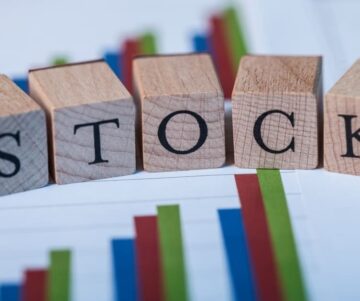Options vs CFDs when stock trading in Holland
admin | February 24, 2022 | 0 | Featured
Options and CFDs are financial instruments that allow you to trade in the stock market without buying or selling stocks.
With an option, you have the right but not the obligation to buy or sell a particular asset at a specific time for a certain price. This type of agreement is called a European style option because traders can only use it when it expires. Other types of options allow you to do this several times throughout your lifetime; these are called American style options.
CFDs, however, give traders access to assets without owning them outright by using contracts between two parties (you and your broker). With CFDs, traders speculate on share prices rather than take ownership of shares themselves.
The benefit of this is that you can make a profit with CFDs even when the market price of an asset is going down.
Both options and shares allow traders to make money in rising, stable or falling markets; however, there are distinct differences between these products:
With an option, your broker sets the daily limit (or strike) price for you, which cannot go below this level. With a CFD, you set the strike price yourself. Options also require more time and effort than CFDs because they expire at a specific date and must be monitored constantly.
On the other hand, investors do not need to monitor their stocks daily, whereas investors with options will have to keep track of stock prices every day before expiration, so they know how much it will cost them to exercise their option.
With CFDs, investors do not need to worry about what the market is doing; they only need to monitor prices before expiry and predict whether they will be above or below the strike price.
This factor does not apply here:
You cannot trade options in Holland.
The tax implications
There is no tax treatment for options in Holland while the Dutch Revenue Service (Belastingdienst) taxes CFD transactions at up to 31{ffbd777502aac056f7e4bef15c603cac3699188bceadee3c19a9c384e2652d39}, which brings them in line with regular stock trading.
For example, if you buy 10k worth of Apple stocks, you have to pay 15{ffbd777502aac056f7e4bef15c603cac3699188bceadee3c19a9c384e2652d39} withholding tax on both your profit and return of capital. However, if you are trading Apple CFDs, you do not have to pay any tax on your profits.
Options are challenging to buy in Holland because they are not widely offered. There is a limited range of stocks available for options trading with most Dutch brokers, and most investors prefer to use CFDs instead. Therefore, this factor does not apply here.
The differences between Options and CFDs
- An option can be bought or sold (you have right but no obligation)
- CFD you don’t own the asset; you only gain exposure to price movements by using contracts between two parties (you and your broker) option has fixed expiration date (European style option); American style option you can control strike price
- with CFDs, traders speculate on share prices rather than take ownership of shares themselves
- Options require more time and effort than CFDs because they expire at a specific date and must be monitored constantly.
- Options also require more time and effort than CFDs because they expire at a specific date and must be monitored constantly.
In conclusion
Whether you want to invest in CFDs or options, it is always advisable to partner with a reputable broker that understands and knows the Dutch stock exchange very well. You can reach out to expert brokers at Saxo Bank to assist you on your trading journey.












